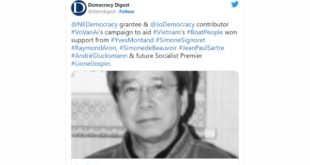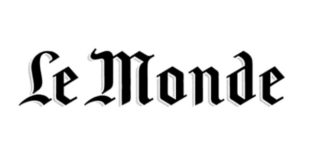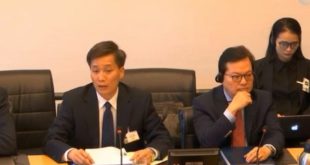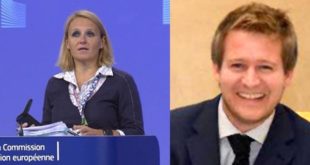(Adds details of accusations paragraphs 4-5)
HANOI, Oct 11 (Reuters) – A Vietnamese government accusation that two leaders of a banned Buddhist group were carrying state secrets was “totally absurd”, their organisation said on Saturday.
Thich Huyen Quang, 86, patriarch of the Unified Buddhist Church of Vietnam (UBCV), and his 74-year-old deputy, Thich Quang Do, were stopped by authorities on Thursday while travelling from their monastery in central Binh Dinh province.
The government said the men were found with “many documents classified as state secrets”.
On Saturday, the Foreign Ministry took the unusual step of issuing a one-and-half page statement on the incident, saying the two had “intentionally violated” Vietnamese laws by seeking to revive the banned UBCV.
In the statement, the ministry reasserted that Vietnam respects freedom of religion and does not repress any believers. It further added that the officially sanctioned Buddhist church “strongly condemned” the two men’s actions.
But the Paris-based International Buddhist Information Bureau, which issues information for the group, said the two were “simple Buddhist monks” and the accusation was “totally absurd”.
The only documents the men were carrying were minutes of a recent church assembly, the group said.
“They are purely religious matters that have nothing to do with the state,” the information agency said.
Security forces on Wednesday prevented the two leaders and nine others from leaving a monastery, the information office said. The government vehemently denied that accusation.
Quang and Do later left the monastery, but were stopped on their way to Ho Chi Minh City on Thursday.
The Foreign Ministry said on Friday traffic officers discovered “evidence of wrongful acts, including many documents classified as state secrets” with the men.
Neither man had been arrested but the investigation would continue, the ministry said.
A European diplomat said the case was being watched abroad.
“This is only the last of a chain of events which calls into doubt Vietnam’s professed commitment to safeguard religious freedom and will certainly cause many questions to be raised in Europe,” the diplomat said.
Five U.S. Congress members expressed concern to Vietnam’s leaders about the case. “We respectfully request that you halt the persecution of the UBCV and its leaders,” they said in a letter dated October 10.
Hanoi recognises six religions, including Buddhism, but requires they submit all aspects of their operations to government scrutiny.
The government officially sanctioned another Buddhist group in 1981 and has been at loggerheads with the Unified Buddhist Church of Vietnam for years.
The church resists government attempts to control its activities, but its relations with the government had recently improved.
 Quê Me Quê Me: Action for democracy in Vietnam & Vietnam Committee on Human Rights
Quê Me Quê Me: Action for democracy in Vietnam & Vietnam Committee on Human Rights



